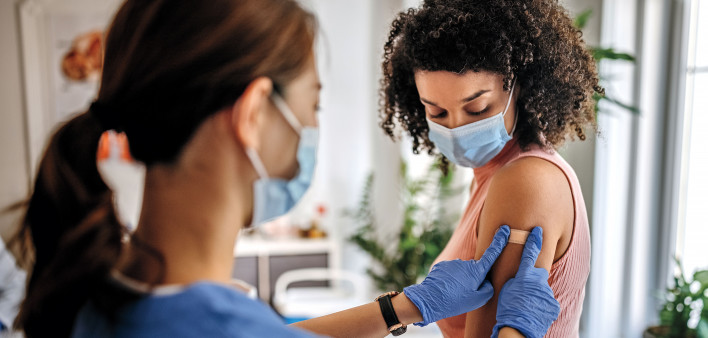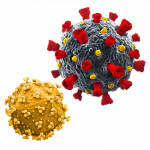With more than two years’ worth of data, most HIV-positive people can feel confident that COVID-19 vaccines provide good protection, especially if they receive booster shots. However, individuals with poorly controlled HIV or moderate to advanced immune suppression may not fare as well.
The Corona-Infectious-Virus Epidemiology Team looked at the risk for severe illness among 1,214 HIV-positive and 2,408 HIV-negative adults in the United States who experienced breakthrough COVID after vaccination. Most had an undetectable viral load and a high CD4 count. All had received two doses of the Pfizer-BioNTech or Moderna messenger RNA (mRNA) vaccines or a single dose of the Johnson & Johnson vaccine.
Overall, people with and without HIV had low and comparable rates of severe breakthrough illness (7.3% and 6.7%, respectively). However, the risk was 59% higher for people with a CD4 count below 350 compared with HIV-negative people. What’s more, HIV-positive people with fewer than 200 CD4 cells had more than a twofold greater risk than those with a count of 500 or higher. Another study of HIV-positive adults in Denmark found that people who received a third vaccine dose were less likely to be hospitalized with COVID than those who got only two doses.
Other recent research showed that people with well-controlled HIV have antibody, memory B-cell and T-cell responses after vaccination and boosters that are comparable to those of HIV-negative people, but people with a low CD4 count may have weaker or less durable responses.
Based on these findings, HIV-positive people with moderate or severe immune suppression “should be included in groups prioritized for additional vaccine doses and risk-reduction strategies,” the authors of the first study suggest. The Centers for Disease Control and Prevention now advises that the primary vaccine series for moderately or severely immunocompromised people—including those living with HIV—should consist of three doses of the mRNA vaccines, to be followed by recommended boosters.







Comments
Comments